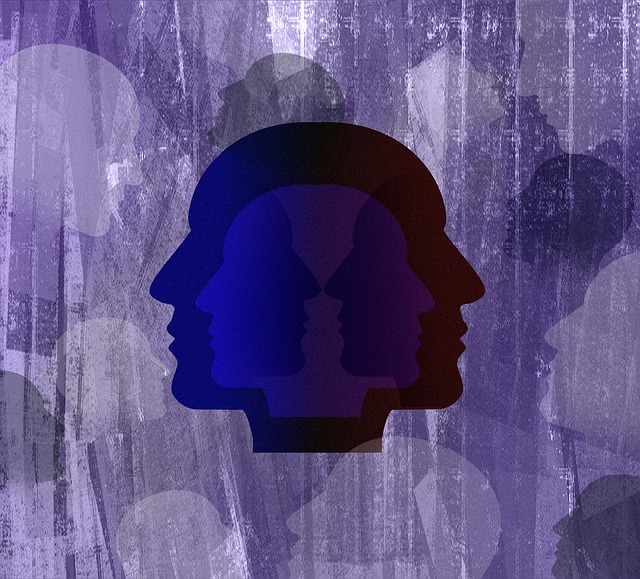Elderly trauma, often hidden but powerful, significantly affects mental wellness. Recognizing and addressing this through specialized therapy, effective communication, support groups, and stress management workshops is crucial. Journaling emerges as a potent therapeutic tool, aiding emotional healing, self-awareness, and reflection for elders dealing with traumatic histories. A consistent journaling routine enhances mental wellness, improves healthcare provider resilience, and promotes compassionate care. "I feel…" statements and mindfulness practices in journaling foster emotion identification and acceptance, while creative expressions cater to diverse learning styles, making it an effective therapy for elders addressing trauma.
In today’s fast-paced world, mental wellness is paramount, especially for our elderly population who may carry hidden traumas. This article offers a comprehensive guide to using journaling as a powerful therapy for elders trauma. We explore the profound impact of past experiences and how expressive writing can facilitate healing and reflection. Learn about establishing a routine, effective techniques, and practical tips to empower individuals in their journey towards mental wellness through this therapeutic practice.
- Understanding Elderly Trauma and Its Impact
- The Power of Journaling for Healing and Reflection
- Creating a Journaling Routine for Mental Wellness
- Effective Techniques to Enhance Journaling Therapy
Understanding Elderly Trauma and Its Impact

Understanding Elderly Trauma and Its Impact
Elderly individuals often carry a burden of past experiences that can significantly affect their mental wellness. The concept of trauma is vast, encompassing various events like abuse, neglect, or even the loss of loved ones. For seniors, these traumatic incidents might have occurred decades ago, yet they can resurface as underlying causes for current emotional and psychological issues. Recognizing and addressing this hidden trauma is crucial in therapy for elders, as it forms a vital part of their overall healing process.
Effective communication strategies play a pivotal role in uncovering these hidden wounds. Through specialized therapy sessions, healthcare professionals create safe spaces where the elderly feel encouraged to share their stories. This opens up avenues for emotional healing processes, enabling them to process and manage stress stemming from past traumas. Moreover, participating in structured stress management workshops or joining support groups can empower seniors with tools to cope and promote a sense of community.
The Power of Journaling for Healing and Reflection

Journaling has long been recognized as a powerful tool for healing and reflection, especially in promoting emotional well-being among elders. By putting pen to paper, individuals can explore their thoughts and emotions, providing an outlet for expression that often complements traditional therapy. This practice is particularly beneficial for those who have experienced trauma, offering a safe and private space to process past events and their impact on the present. Through regular journaling exercises, elders can develop emotional intelligence, fostering better self-awareness and coping mechanisms, which are crucial in managing conditions such as anxiety relief.
The act of journaling encourages introspection and self-reflection, allowing individuals to make sense of their experiences and gain new perspectives. This process can be transformative, helping to break down complex emotions and thoughts into manageable pieces. For the elderly, who may face various life changes and challenges, this simple yet profound practice can serve as a form of therapy, providing an effective means to navigate through difficult times and promote overall mental wellness.
Creating a Journaling Routine for Mental Wellness

Creating a consistent journaling routine can be a powerful tool for enhancing mental wellness, especially for older adults who may have experienced trauma throughout their lives. It provides a safe and private space to process emotions, reflect on experiences, and cultivate self-awareness—essential components of therapy for elders with traumatic histories. By dedicating just a few minutes each day to writing down thoughts and feelings, individuals can improve their emotional resilience, which is particularly valuable in preventing burnout among healthcare providers who frequently encounter trauma survivors.
This practice also serves as an effective risk management planning strategy for mental health professionals. Journaling allows practitioners to process complex cases, gain perspective on challenging interactions, and develop coping mechanisms. It promotes self-care, ensuring professionals maintain their own mental wellness while providing support to others. Through regular reflection, healthcare providers can enhance their ability to offer compassionate and effective care.
Effective Techniques to Enhance Journaling Therapy

Journaling has emerged as a powerful therapy for elders dealing with trauma, offering a safe space to process and heal. Effective techniques include writing freely about emotions and experiences, using guided prompts tailored to specific needs, and incorporating mindfulness practices. For instance, starting with “I feel…” statements can help identify and accept emotions, fostering self-awareness.
Incorporating resilience-building exercises enhances journaling therapy. Encouraging elders to reflect on past challenges and successes can strengthen coping mechanisms, promoting anxiety relief and crisis intervention guidance. Additionally, creative expressions like drawing or collage making alongside written entries can provide alternative outlets for processing trauma, catering to diverse learning styles and enhancing the overall therapeutic experience.
Mental wellness journaling can serve as a powerful tool for elders to navigate and heal from trauma, offering a private space for reflection and emotional release. By incorporating structured yet flexible routines and effective techniques, individuals can harness the therapeutic benefits of journaling to enhance their overall well-being. Encouraging regular practice, even for brief periods, can foster resilience and promote positive mental health outcomes in this vulnerable population. Remember, for elders dealing with trauma, finding safe, supportive avenues for expression is essential, making mental wellness journaling a valuable asset in their healing journey.











